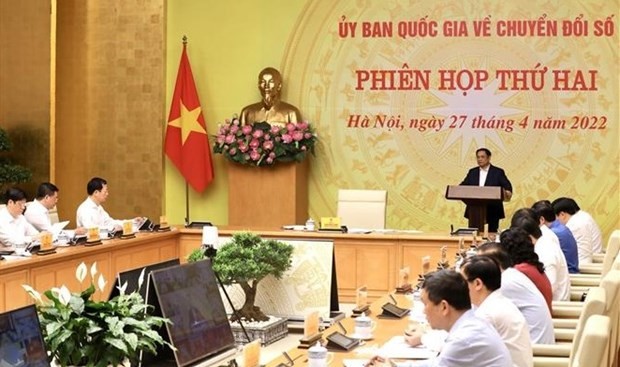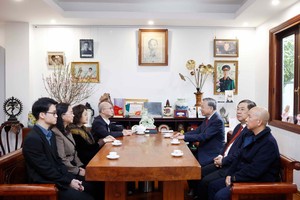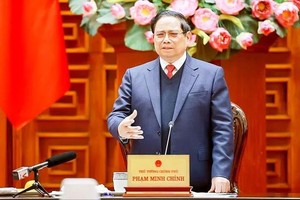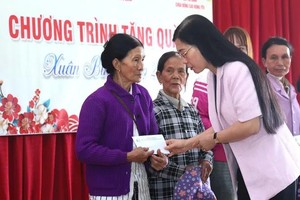 Prime Minister Pham Minh Chinh speaks at the meeting. (Photo: VNA)
Prime Minister Pham Minh Chinh speaks at the meeting. (Photo: VNA)
PM Chinh, who is head of the committee, stressed that the 13th National Party Congress’s document defines the national digital transformation as an important task associated with three main pillars of digital government, digital economy, and digital society.
The Party, State, Government and Prime Minister have paid special attention to this work, towards building a digital government, economy and society, and digital citizens, he said.
The leader stated that he had approved the designation of October 10 as the National Digital Transformation Day with three main goals of speeding up the implementation of relevant tasks, improving public awareness of the role, significance and benefits of digital transformation, and boosting the engagement of the entire political system, concerted actions at all level, and the participation of all people to ensure the success of the process.
Emphasizing the heavy missions of the national committee, he asked it to direct and carry out policies and mechanisms to speed up the national digital transformation in association with administrative reform; build and develop the e-Government, digital government, economy and society, and smart cities; and facilitate the implementation of the Fourth Industrial Revolution in Vietnam.
The committee was also tasked with removing obstacles and perfecting institutions for digital transformation; investing more in technology and infrastructure; mobilizing resources, including the public-private partnership; issuing new mechanisms and policies that are suitable to the general ones but also have priorities to create a driving force for rapid development of digital transformation; innovating governance to meet higher requirements; and improving the quality of human resources.
Negative phenomena can easily occur as digital transformation is associated with investment in and upgrading of infrastructure and technology, PM Chinh noted, asking for regular inspection and supervision to prevent corruption.
According to a report on the digital transformation situation in the first quarter of this year delivered by Deputy Minister of Information and Communications Nguyen Huy Dung, as of late March, all the 22 ministries and sectors and the country's 63 provinces and cities had set up their own steering committees on digital transformation, and 17 ministries and sectors and 57 localities issued five-year programs/plans/projects on this work.
The rate of adults using smart phones was 70.91 percent, while the proportion of households with broadband fiber optic cable was 68.8 percent.
The e-invoice system is being carried out nationwide, creating favorable conditions for both people and enterprises. In Q1, the taxation agency received and handled over 77.7 million e-invoices.
Total revenue of the digital economy is estimated at about US$53 billion in Q1, making 10.2 percent of GDP, of which the platform digital economy has a growth rate of 28 percent with US$8 billion in revenue.
























